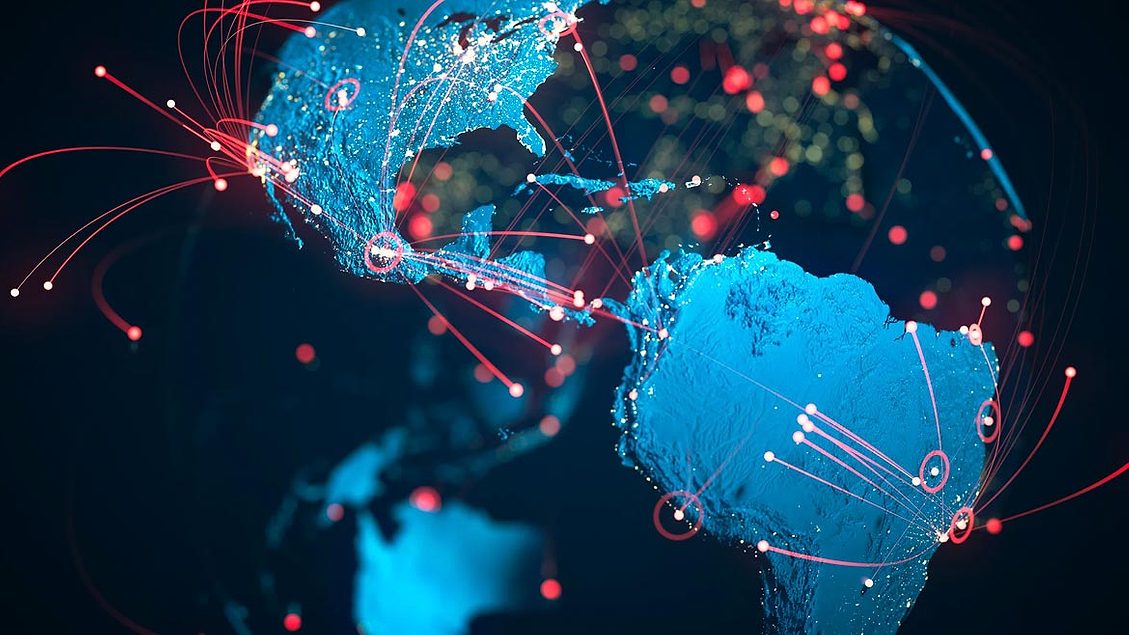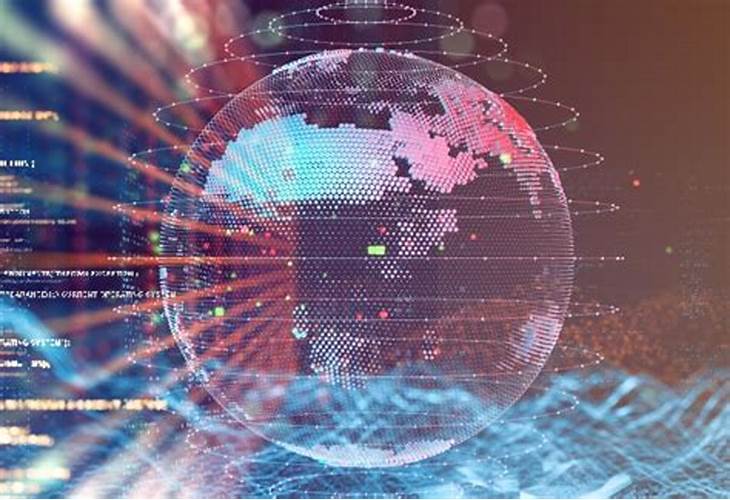🧠 Quantum Computers: A Double-Edged Sword
Quantum computers are poised to revolutionize everything from drug discovery to climate modeling. But they also present serious threats to national security and the global economy, primarily due to their ability to break traditional encryption systems and disrupt digital infrastructures.
⚠️ 1. National Security Threats
🔓 Breaking Modern Cryptography (RSA, ECC)
-
Current systems rely on mathematical problems (like factoring large numbers) which classical computers can’t solve easily.
-
Quantum algorithms like Shor’s Algorithm can crack RSA encryption in minutes.
-
This would make military communications, government secrets, and secure databases vulnerable.
🕵️ Cyber Espionage
-
Sensitive data (even encrypted today) could be stored by adversaries and decrypted later once quantum computers mature — known as “Harvest Now, Decrypt Later”.
🛡️ Defense Systems at Risk
-
Quantum computers could disable encrypted defense networks, satellite communications, and drone systems.
-
Could allow adversaries to simulate and optimize weaponry at speeds unimaginable today.
💸 2. Economic Threats
💳 Financial Systems Disruption
-
Banks, stock markets, and payment gateways use public-key cryptography.
-
A quantum breach could wipe out billions, cause banking chaos, and collapse financial trust.
🧬 Corporate Espionage
-
Intellectual property like pharma formulas, AI models, and energy designs could be decrypted.
-
This can cripple competitive advantage and hurt GDPs.
📉 Market Instability
-
If quantum capabilities are weaponized or leaked, markets may crash on fear alone — triggering a new cyber arms race.
🛠️ What Governments & Organizations Are Doing
🔐 Post-Quantum Cryptography (PQC)
-
NIST (U.S. National Institute of Standards and Technology) is standardizing quantum-safe algorithms like CRYSTALS-Kyber.
-
India, U.S., EU, China, and Japan are investing heavily in quantum-resilient infrastructure.
🛰️ Quantum Communication
-
Development of Quantum Key Distribution (QKD) and satellite-based secure communication to stay ahead.
🌐 Global Alliances
-
Partnerships like the Global Partnership on Artificial Intelligence (GPAI) and QUANTUM FLAGSHIP in the EU focus on readiness.
🧭 Steps for Nations to Protect Themselves
-
Inventory Critical Systems using classical encryption.
-
Start Migration to PQC algorithms today.
-
Train Cybersecurity Personnel in quantum computing risks.
-
Fund Quantum R&D to avoid reliance on foreign tech.
-
Create Quantum Emergency Response Teams (QERTs) for strategic sectors.
🧩 Final Thought
Quantum computing is not just a technological leap — it’s a geopolitical game-changer. Countries that fail to prepare may find their digital sovereignty compromised and their economic stability shaken.

Quantum Computers: A Looming Threat to National Security & Economy
The imminent arrival of quantum computing poses unprecedented risks to national security, financial systems, and economic stability worldwide. Governments and industries must act swiftly to mitigate these threats before large-scale quantum computers become operational.
1. Quantum Computing: Breaking Modern Encryption
Threat: Cryptographic Collapse
- Current encryption (RSA, ECC, AES) relies on mathematical problems that quantum computers can solve in seconds using Shor’s Algorithm.
- Banking, military communications, and blockchain (Bitcoin, Ethereum) could be decrypted, leading to:
- Financial chaos (stolen transactions, hacked stock markets).
- Cyber warfare (exposed classified data, manipulated defense systems).
- Mass surveillance risks (governments/criminals decrypting private data).
At-Risk Systems:
✔ Military & Intelligence (Secure communications, nuclear codes)
✔ Banking & Stock Markets (Digital payments, SWIFT transactions)
✔ Blockchain & Cryptocurrencies (Bitcoin wallets, smart contracts)
✔ Healthcare & IoT (Medical records, smart city infrastructure)
2. Economic Disruption: A New Era of Cyber Threats
Threat 1: Financial System Meltdown
- Quantum computers could reverse-engineer digital signatures, allowing hackers to:
- Steal billions from banks.
- Manipulate stock trades (flash crashes, fake transactions).
- Break into central bank systems (counterfeit digital currencies).
Threat 2: Blockchain Vulnerabilities
- Bitcoin & Ethereum use ECDSA encryption, which quantum computers can crack.
- Result: Theft of crypto wallets, 51% attacks on blockchains.
Threat 3: Corporate & Government Espionage
- Stolen patents, R&D data, and trade secrets could be decrypted from past breaches (“Harvest Now, Decrypt Later” attacks).
3. National Security Risks: Cyber Warfare & Military Threats
Threat 1: Military Communications Compromised
- Encrypted military orders, drone controls, and nuclear launch codes could be hacked.
- Adversaries (China, Russia, North Korea) are investing heavily in quantum hacking.
Threat 2: AI + Quantum = Supercharged Cyber Attacks
- Quantum-powered AI could:
- Break into power grids, satellites, and defense systems.
- Launch undetectable cyber-attacks.
Threat 3: Quantum Surveillance State
- Governments with quantum decryption could monitor all encrypted communications globally, leading to mass privacy violations.
4. Mitigation Strategies: Preparing for the Quantum Era
Solution 1: Post-Quantum Cryptography (PQC)
- NIST has selected 4 quantum-resistant algorithms (CRYSTALS-Kyber, Dilithium, Falcon, SPHINCS+).
- Action Needed: Governments & corporations must transition to PQC by 2030.
Solution 2: Quantum Key Distribution (QKD)
- Uses quantum physics to create unhackable communication channels.
- China already uses QKD for secure military networks.
Solution 3: Quantum Readiness Policies
- US, EU, and India are developing quantum security frameworks.
- India’s National Quantum Mission (2023) aims to build indigenous quantum tech.
5. Global Race: Who’s Leading in Quantum?
| Country | Quantum Investment | Military Quantum Programs |
|---|---|---|
| USA | $1.2B (NSF, DARPA) | Quantum Internet (DoD) |
| China | $15B (Quantum supremacy) | Micius Satellite (QKD) |
| EU | €1B (Quantum Flagship) | EuroQCI (Secure EU Comms) |
| India | ₹6,000Cr (NQM) | DRDO Quantum Lab |
Conclusion: A Looming Crisis Demanding Immediate Action
- By 2030, quantum computers may break current encryption.
- Governments must mandate PQC adoption before it’s too late.
- India needs a “Quantum Security Task Force” to protect defense & financial systems.
Will the world be ready, or will quantum computing trigger the next global security crisis?
Sources & Further Reading:
- NIST Post-Quantum Cryptography Standardization
- India’s National Quantum Mission
- China’s Quantum Advances (Rand Report)
- Quantum Threat to Bitcoin (Nature Journal)
